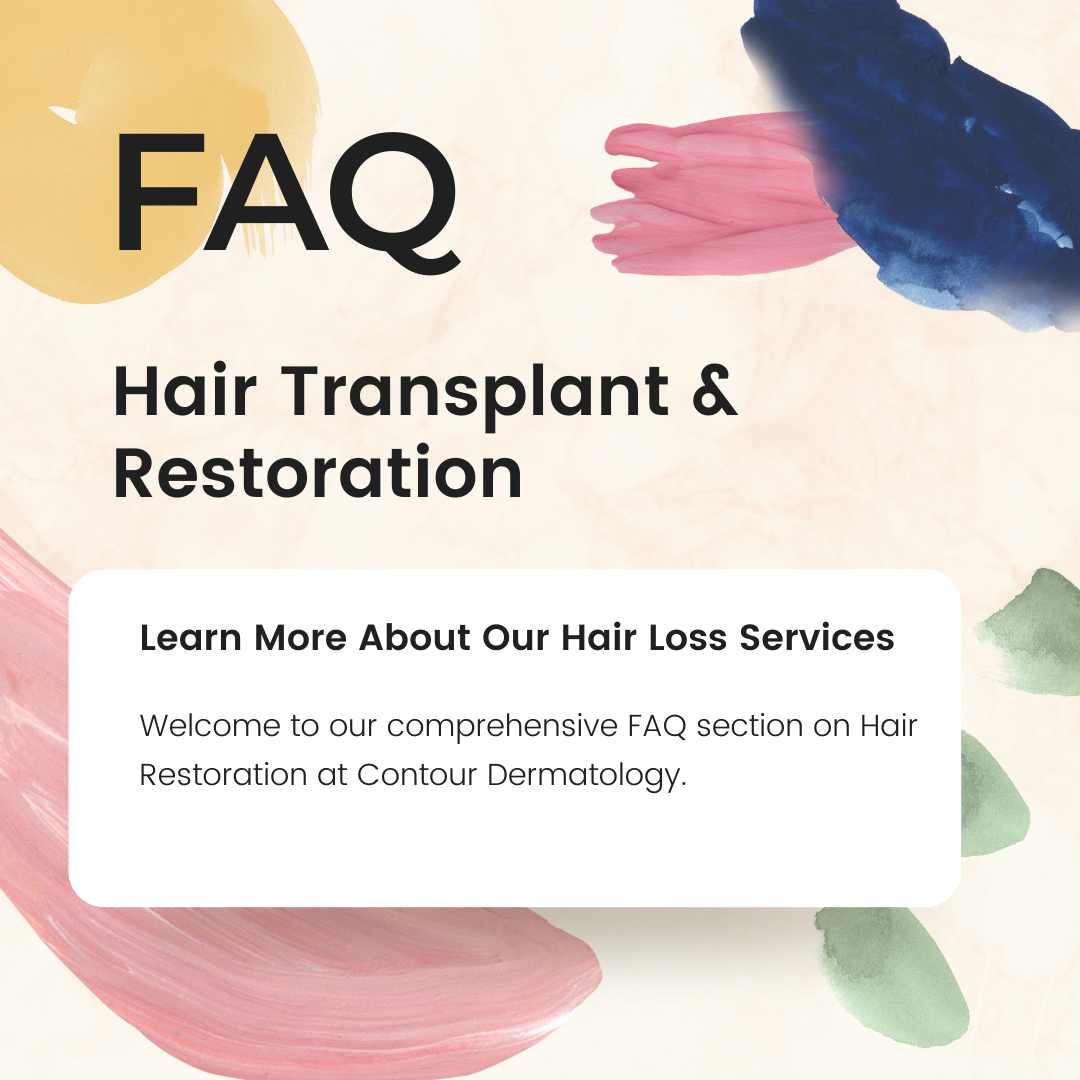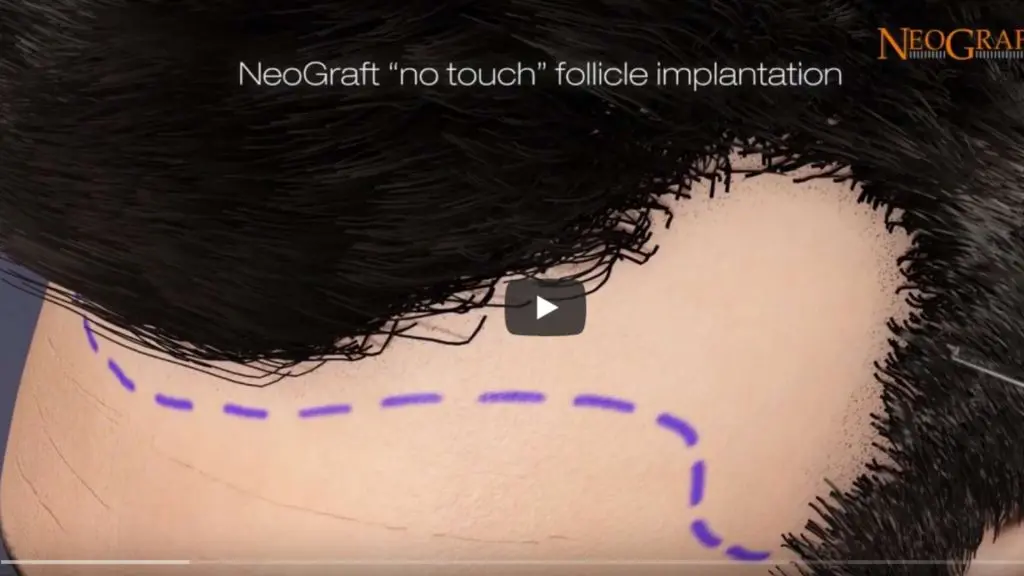Frequently Asked Questions about Hair Restoration
Learn More About Hair Restoration and Get Your Questions Answered
Embark on your journey to hair restoration with confidence by exploring our detailed Frequently Asked Questions (FAQ) section. At Advanced Hair Restoration at Contour Dermatology, we understand that the decision to pursue hair restoration involves many considerations. That’s why we’ve compiled a comprehensive guide to answer your most pressing queries. From the basics of hair loss and restoration options to in-depth insights into procedural techniques, aftercare, and expected outcomes, our FAQ section is designed to equip you with the knowledge you need to make an informed decision about your hair restoration journey. Discover answers, gain clarity, and find peace of mind as you explore the possibilities of hair restoration with us
Frequently Asked Questions about Hair Restoration
Learn More About Hair Restoration and Get Your Questions Answered
Embark on your journey to hair restoration with confidence by exploring our detailed Frequently Asked Questions (FAQ) section. At Contour Dermatology, we understand that the decision to pursue hair restoration involves many considerations. That’s why we’ve compiled a comprehensive guide to answer your most pressing queries. From the basics of hair loss and restoration options to in-depth insights into procedural techniques, aftercare, and expected outcomes, our FAQ section is designed to equip you with the knowledge you need to make an informed decision about your hair restoration journey. Discover answers, gain clarity, and find peace of mind as you explore the possibilities of hair restoration with us
How do I know if I'm a candidate for hair transplantation surgery?
The first step in determining if you’re a candidate for hair transplantation surgery is to schedule a personalized consultation with Dr. Jochen. During this visit, you’ll be asked about your expectations for hair restoration, your family and personal history of hair loss, any previous scalp surgeries, and any other medical conditions you may have. The ideal candidate for this surgery should have healthy existing hair on the back or sides of the head for grafting purposes.
Why do I need to avoid taking aspirin, ibuprofen, certain supplements and alcohol prior to surgery? These products can affect your blood’s ability to clot and excess bleeding may affect the grafts’ ability to survive and may result in an infection in the donor site.
Can I drive myself to and from the surgery?
You can, but you should make arrangements for transportation if you’ll be receiving any sedation. Ideally, it’s better to have someone drive you home.
Does it hurt?
You should feel no pain during the procedure because of the local anesthetic. If you wish, we will also give you sedation to relax you during the procedure. After your surgery is completed and the local anesthetic wears off, you may feel some discomfort. We will provide you with a prescription for pain medication that should be filled before surgery. Most patients need the prescription pain medication for only a few days.
How soon can I cut or color my hair after a hair transplant?
You should avoid strenuous physical activity for the first two weeks to prevent the loss of grafts and increased swelling. After 14 days, you can resume weight lifting, heavy exercise and swimming. For the first five days, limit your direct sun exposure of the scalp to 30 minutes.
How soon can I resume my normal activities?
You may have your hair cut as soon as the sutures have been removed (usually about a week to 10 days after the procedure). Hair coloring is permitted three weeks after your procedure.
How soon will I see new hair growth?
In about two and a half to three months your new hair will begin to grow in and it continue to grow at the normal rate of a half-inch to one inch per month.
Will I have scarring?
Most patients find that the linear scar at the donor site is barely noticeable, especially once the hair grows back in around it. If you have a history of hypertrophic/keloid-type scarring (a thickened or raised type of scar), or you have had previous transplants taken from the donor area of your scalp, more significant scarring is possible.
How long does a hair transplant last?
That’s one of the best things about hair transplantation – the results are permanent.
How much does hair transplantation cost?
Our prices at Hair Restoration Clinic at Contour Dermatology are very reasonable and are typically 35 to 50% less than other places in Southern California.
Do you offer financing?
Contour is pleased to participate in CareCredit®, a credit card just for health and beauty needs that aren’t covered by insurance. It allows you to pay over time, often without incurring interest charges. You can even apply online. To learn more, visit www.carecredit.com
We are also thrilled to announce our participation in PRIVI by PatientFi. This innovative program allows us to offer our patients a flexible and convenient financing solution, making top-tier dermatological care more accessible than ever. With PRIVI, we can provide tailored payment plans that suit our patients’ needs, ensuring that everyone has the opportunity to achieve their aesthetic and skincare goals. Our commitment to patient care and satisfaction remains our highest priority, and partnering with PRIVI enhances our ability to deliver exceptional service and results.





















